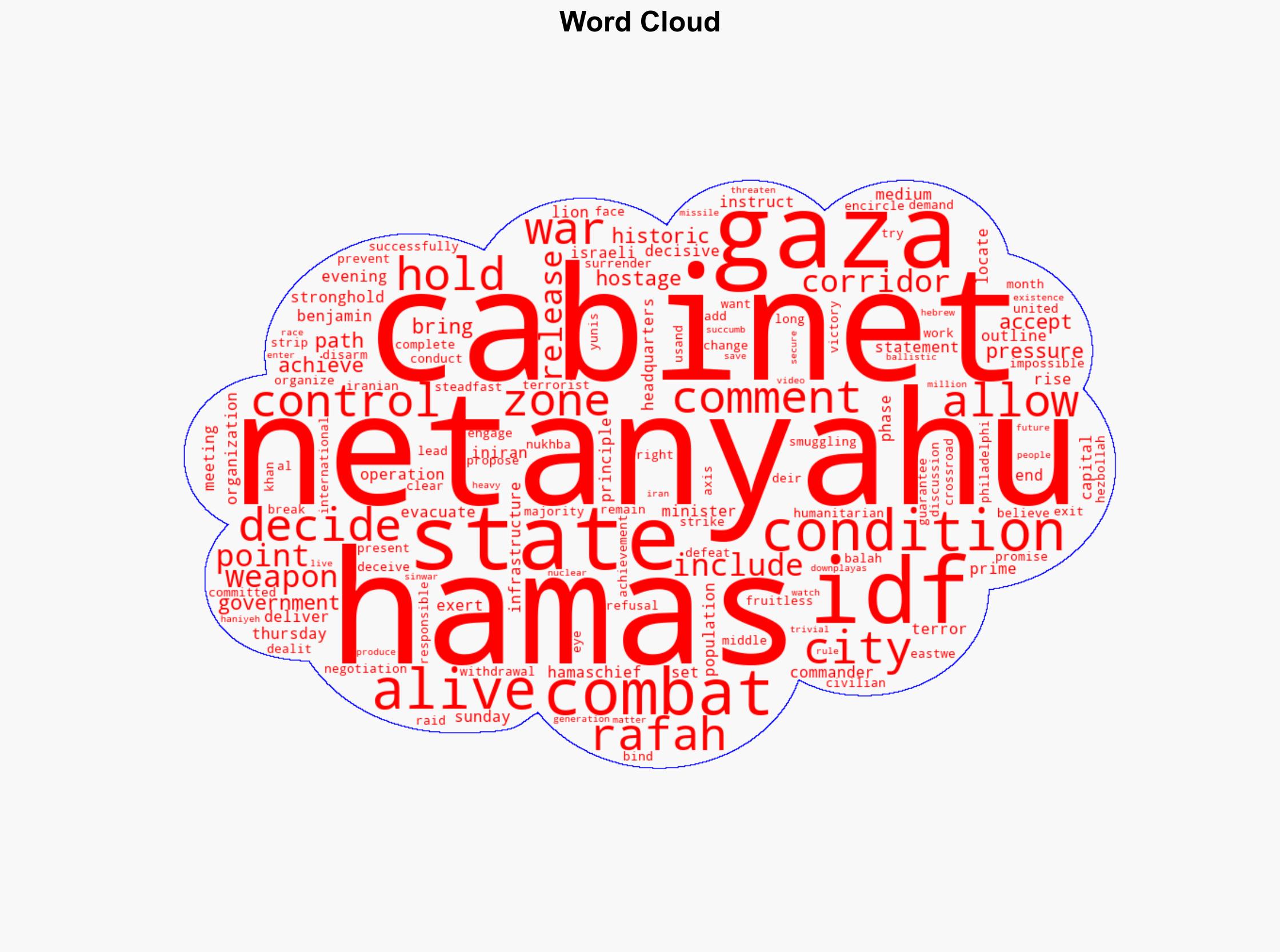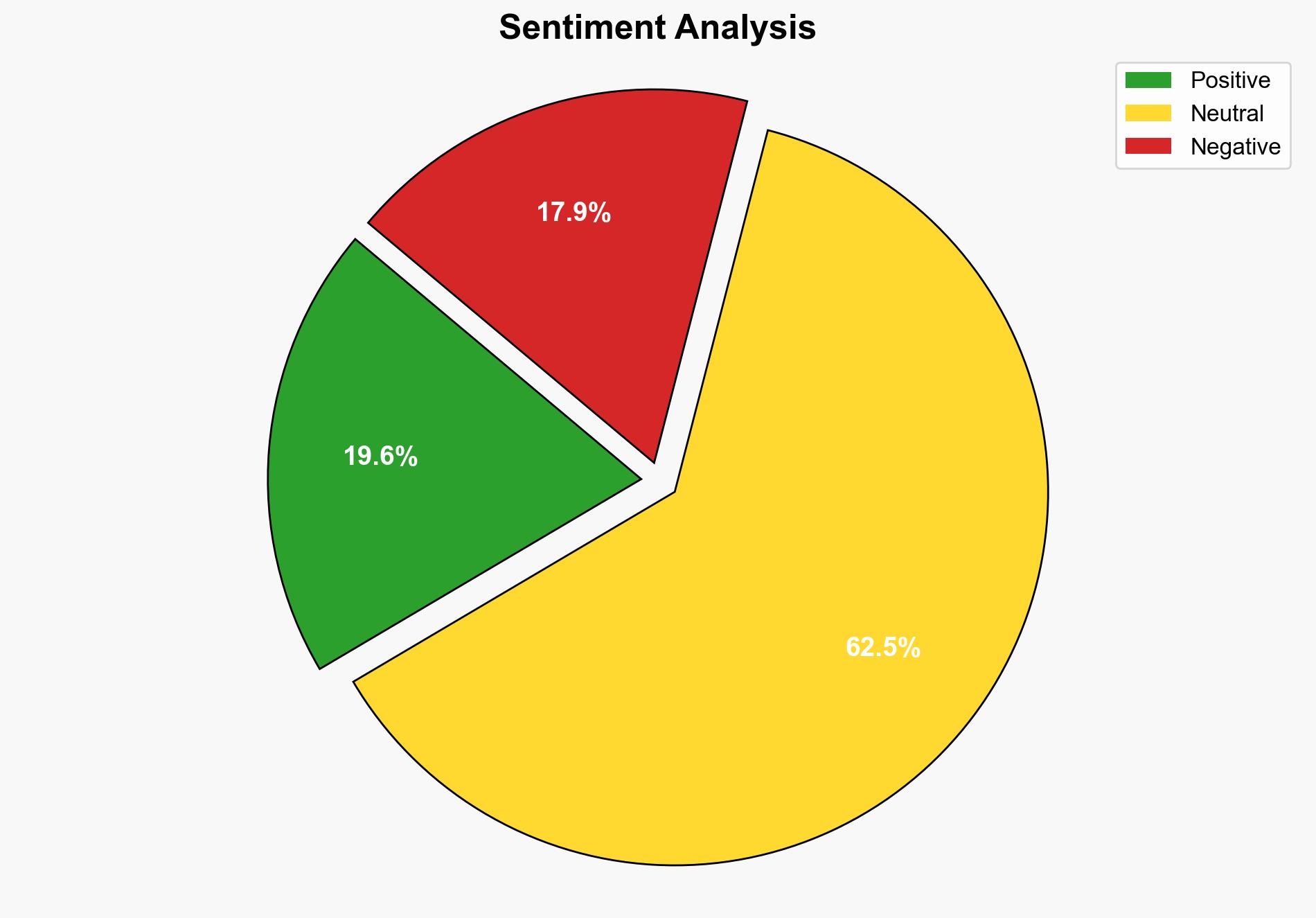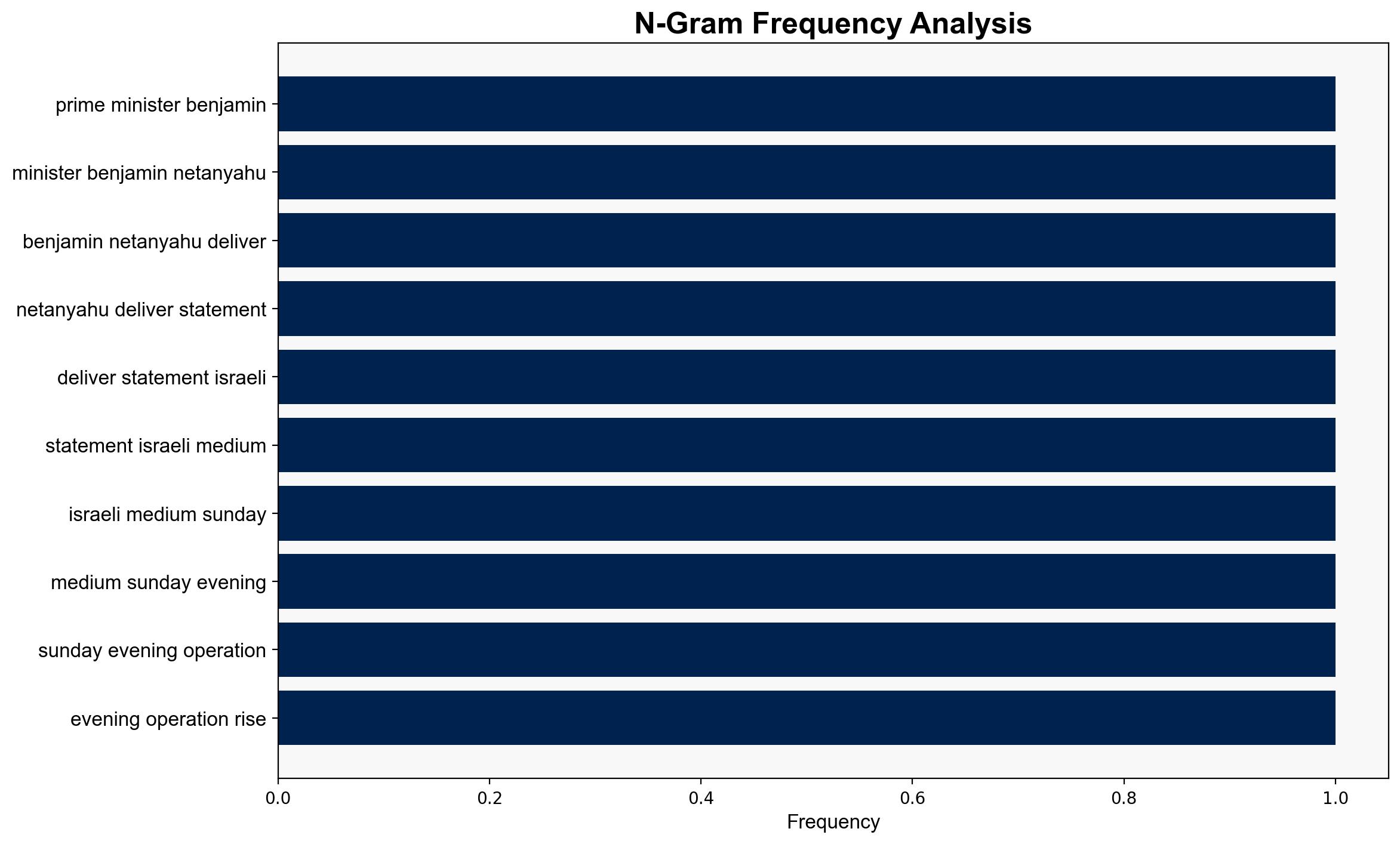Netanyahu Hamas deceived us the only way to bring back the hostages is to defeat it – Israelnationalnews.com
Published on: 2025-08-11
Intelligence Report: Netanyahu Hamas deceived us the only way to bring back the hostages is to defeat it – Israelnationalnews.com
1. BLUF (Bottom Line Up Front)
The strategic judgment is that the Israeli government, led by Benjamin Netanyahu, perceives a military defeat of Hamas as the only viable path to secure the release of hostages. The most supported hypothesis is that Netanyahu’s administration is committed to a military solution due to perceived deception by Hamas and failed negotiations. Confidence in this assessment is moderate due to potential biases and limited information. Recommended action includes preparing for extended military engagement while exploring diplomatic channels to mitigate humanitarian impact.
2. Competing Hypotheses
1. **Hypothesis A**: Netanyahu’s administration genuinely believes that defeating Hamas militarily is the only way to ensure the release of hostages and secure long-term regional stability. This hypothesis is supported by the emphasis on military operations and the framing of Hamas as an existential threat.
2. **Hypothesis B**: The focus on military action is a strategic posture to strengthen Israel’s negotiating position and pressure Hamas into concessions. This could be a tactic to gain international support or leverage in future negotiations.
Using ACH 2.0, Hypothesis A is better supported due to consistent messaging from Netanyahu and the lack of progress in negotiations, which aligns with the declared military objectives.
3. Key Assumptions and Red Flags
– **Assumptions**: The Israeli government assumes that military defeat of Hamas will lead to the release of hostages and that international actors will not intervene decisively against this approach.
– **Red Flags**: Potential overestimation of military effectiveness and underestimation of Hamas’s resilience. The assumption that hostages will be released post-defeat is speculative.
– **Blind Spots**: Limited consideration of alternative non-military solutions and potential backlash from international communities.
4. Implications and Strategic Risks
– **Geopolitical**: Escalation could destabilize the region further, potentially drawing in Iran and Hezbollah, complicating Israel’s security landscape.
– **Economic**: Prolonged conflict may strain Israel’s economy and impact regional trade.
– **Psychological**: Continued conflict may erode public support domestically and internationally, affecting Israel’s global standing.
– **Cyber**: Increased risk of cyber retaliation from Hamas or allied groups.
5. Recommendations and Outlook
- Enhance intelligence operations to better understand Hamas’s capabilities and intentions.
- Engage with international partners to explore diplomatic solutions and mitigate humanitarian crises.
- Scenario Projections:
- Best Case: Successful military operations lead to hostage release and weakened Hamas.
- Worst Case: Prolonged conflict with high casualties and regional destabilization.
- Most Likely: Continued military engagement with incremental progress and ongoing negotiations.
6. Key Individuals and Entities
– Benjamin Netanyahu
– Hamas leadership, including Yahya Sinwar and Ismail Haniyeh
– Iranian government
7. Thematic Tags
national security threats, counter-terrorism, regional focus




